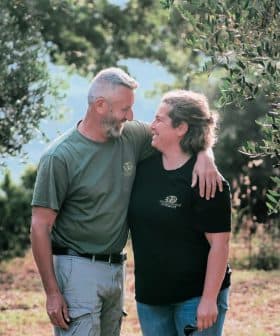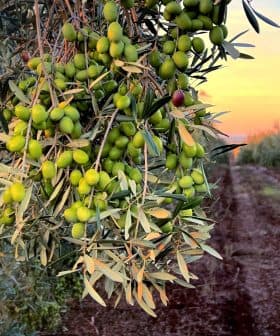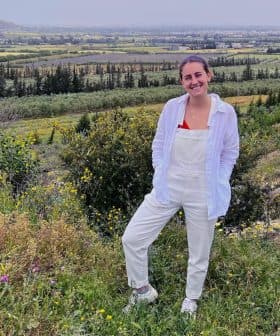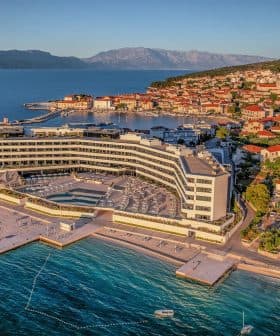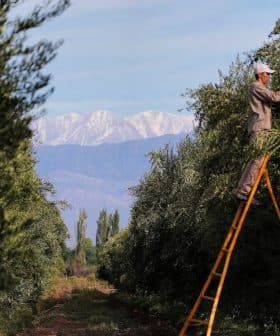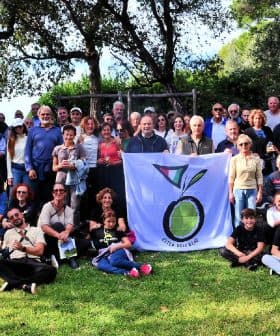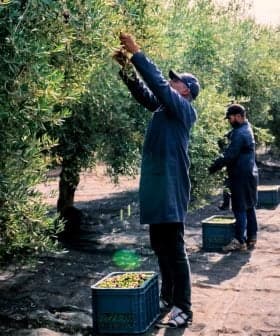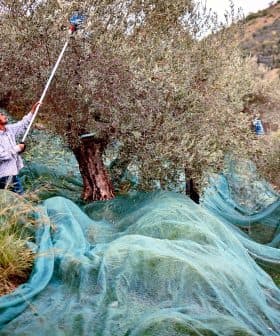A Croatian Olive Grower's Journey from Ancestral Roots to Award-Winning Groves
Krešimir Uroda, inspired by his father’s legacy, returned to his family’s ancestral land in Dalmatia to cultivate a successful olive grove, winning awards for his high-quality olive oil. He has also become a pioneer in olive tourism, hosting guests at his “Orkula” Robinson house and promoting sustainable practices in olive growing, aiming to create a significant tourist attraction on Makirina Hill.
This is the inspiring story of Krešimir Uroda, a Croatian olive grower who returned to his family’s ancestral land in Dalmatia and, much like the biblical figure Samson, transformed a rugged hill into a thriving olive grove attraction.
Returning to Roots and Building a Legacy
Krešimir, now 43, embarked on this venture after the passing of his father, Ante. Having grown up in Čakovec in northern Croatia, Krešimir felt the pull of his heritage and returned to Pirovac, his family’s ancestral home on the Dalmatian coast.
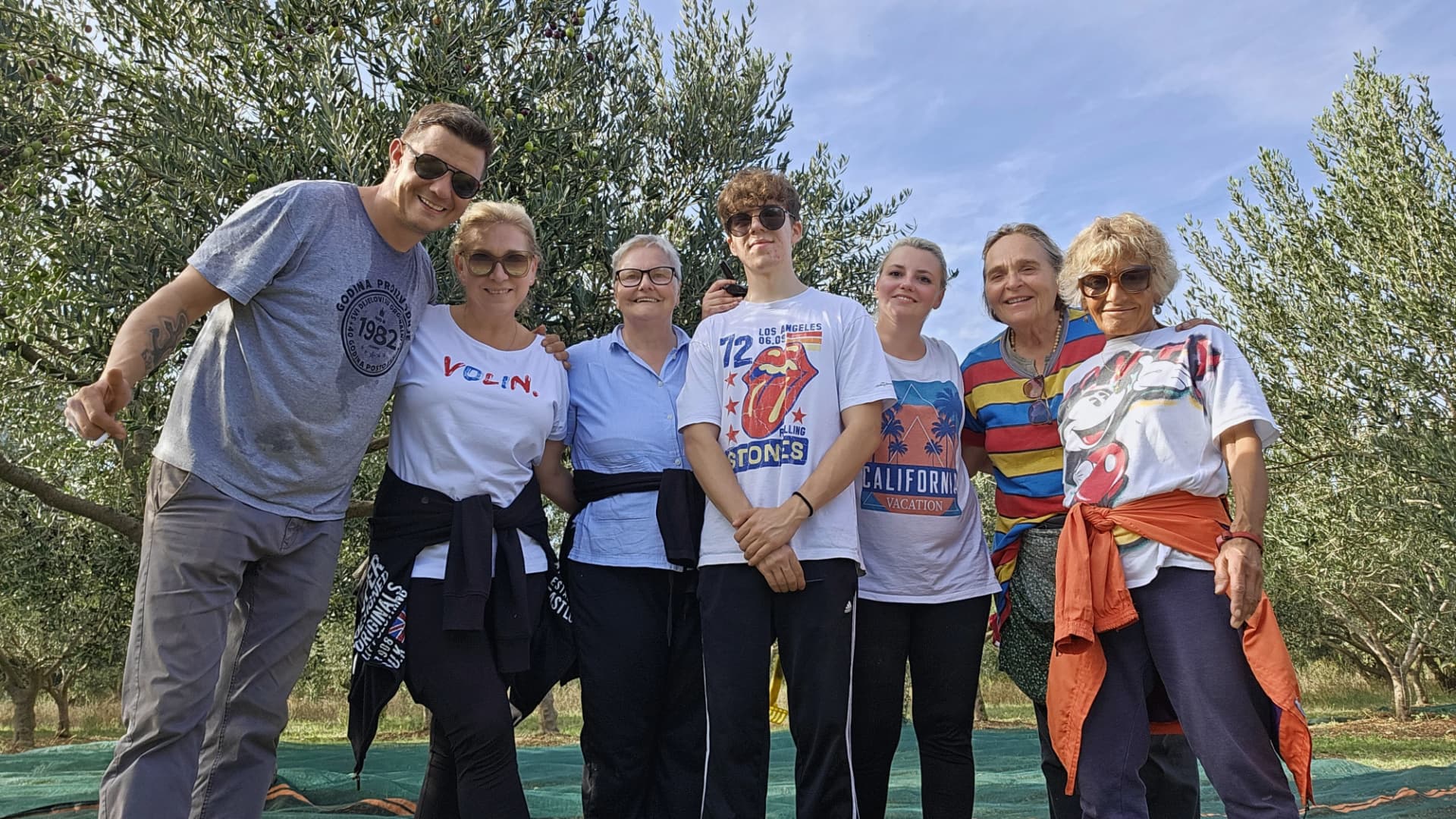
The Uroda family
His family’s story is one of connection and love. Ante, born in Pirovac, fell in love with Danica, a talented handball player from Međimurje. Their love story led to marriage, and they built a life in Čakovec, raising Krešimir and his two sisters. Ante, however, never forgot his roots and, 15 years prior to Krešimir’s return, had planted 370 olive trees on the neglected family land in Pirovac, at a location called Kruška. He often urged Krešimir to take over the olive grove, a wish that became even more pressing as his health declined.
A Father’s Legacy and Award-Winning Oil
“I always wanted to come back; my heart was pulling me here, so it wasn’t a difficult decision,” Krešimir explains. In the spring of 2018, as his father’s health took a serious turn, Krešimir took over the olive grove.
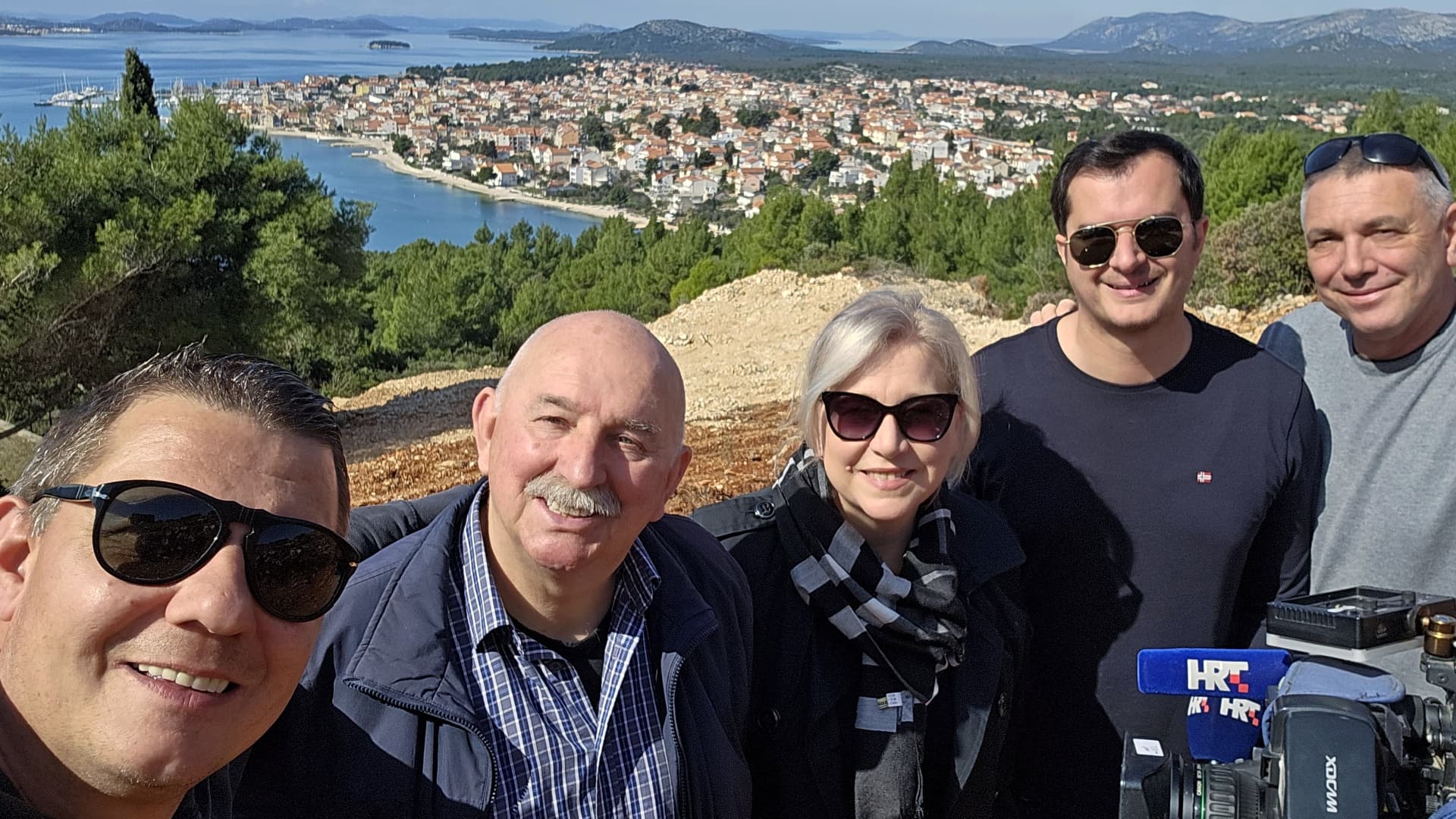
Uroda and his fiancée Đurđica with reporters from Olive Oil Times and Croatian Television
That year, the olive trees yielded a bountiful harvest for the first time. Krešimir fondly recalls visiting his father in the hospital daily, sharing photos of the laden olive branches. Though his father did not live to see the harvest, the oil produced from that first “caca harvest” won a gold medal at the “Days of Young Olive Oil in Dalmatia” event.
“I dedicated the medal to my father. This success encouraged me to pursue olive growing even more seriously,” Krešimir says. Further recognition followed, including a remarkable 99 out of 100 points at the prestigious Noćnjak in Zadar.
International Acclaim and a Growing Enterprise
Krešimir’s dedication to quality has earned him international acclaim. His olive oils have consistently won gold medals at the world’s largest evaluation of olive oil quality in New York, with the latest being his fourth consecutive gold.
To expand his production, he has also taken on two-hundred-year-old olive groves. His fiancée, Đurđica, and increasingly his son Roko, who will continue his studies in Zadar, assist him in his work.
Pioneering Olive Tourism and Sustainable Practices
Beyond producing high-quality olive oil, Krešimir has become a pioneer in olive tourism in the Pirovac region. His “Orkula” Robinson house, nestled within the olive grove, has proven to be a popular destination, booked for 116 days last year. It is a prime example of how olive growing and tourism can intertwine successfully.
Guests at “Orkula” enjoy the tranquility of the olive grove, surrounded by the scents of lavender and rosemary. They are also close to natural attractions like the Krka and Zrmanja National Parks, Vrana Lake Nature Park, and the Kamenjak viewpoint. The Zadar airport is also conveniently located nearby.
The positive experiences of his guests are evident in online reviews and the accolades he has received from the Airbnb platform, including the Super Host award and the Travelers’ Choice award from Booking.
Krešimir’s olive grove also serves as an educational hub, hosting visits from students of various ages. Pupils from the Matija Gubec International Primary School in Zagreb participated in the olive harvest, while tourism management students from Šibenik learned about premium olive oils and their medicinal properties.
Embracing Modern Techniques for Sustainable Growth
Krešimir is also committed to modern and sustainable olive-growing practices. Members of the Association of Olive Growers of Šibenik-Knin County “Ultra Extra” gathered at his grove for a workshop led by experts from the Olive Pruning School in Zadar. They discussed the advantages of the multi-conical or polyconic vase cultivation form, a technique gaining traction in regions like Tuscany and Croatian Istria. This technique aims to improve olive yields and reduce costs associated with pruning, harvesting, and protection.
The existing plantation, planted 15 years ago with a 4x5 meter spacing, was becoming overcrowded. Experts demonstrated the necessary crown reform, transitioning from spherical to multi-conical, and pruned around 100 of the 370 olive trees. Krešimir plans a gradual overhaul to achieve optimal results, leading to better crops and cost savings.
Creating a Tourist Attraction on Makirina Hill
Krešimir’s vision extends beyond olive oil production. He is transforming another neglected ancestral land on the Makirina hill at 190 meters above sea level. With the help of heavy machinery, he cleared the area of pines and undergrowth and terraced the steep slope into eight cascades. He plans to plant local varieties like Oblica and Lastovka.
This undertaking is partially funded by a €15,000 grant from LAG “More 249” Vodice. Further investments are planned to improve the access road, which already has marked Stations of the Cross. The municipality has promised to develop pedestrian and bicycle paths.
From this vantage point, Krešimir, his fiancée Đurđica, mother Danica, and sister Ana enjoy a breathtaking view of Pirovac and the surrounding waters, including Lake Vrana, the island of Pašman, the Kornati archipelago, and parts of the Velebit mountain range. A traditional dry-stone shelter, or “bunja,” also adds to the landscape’s charm. Plans include a small tourist tasting room and an observation deck, promising to make this a significant tourist attraction.
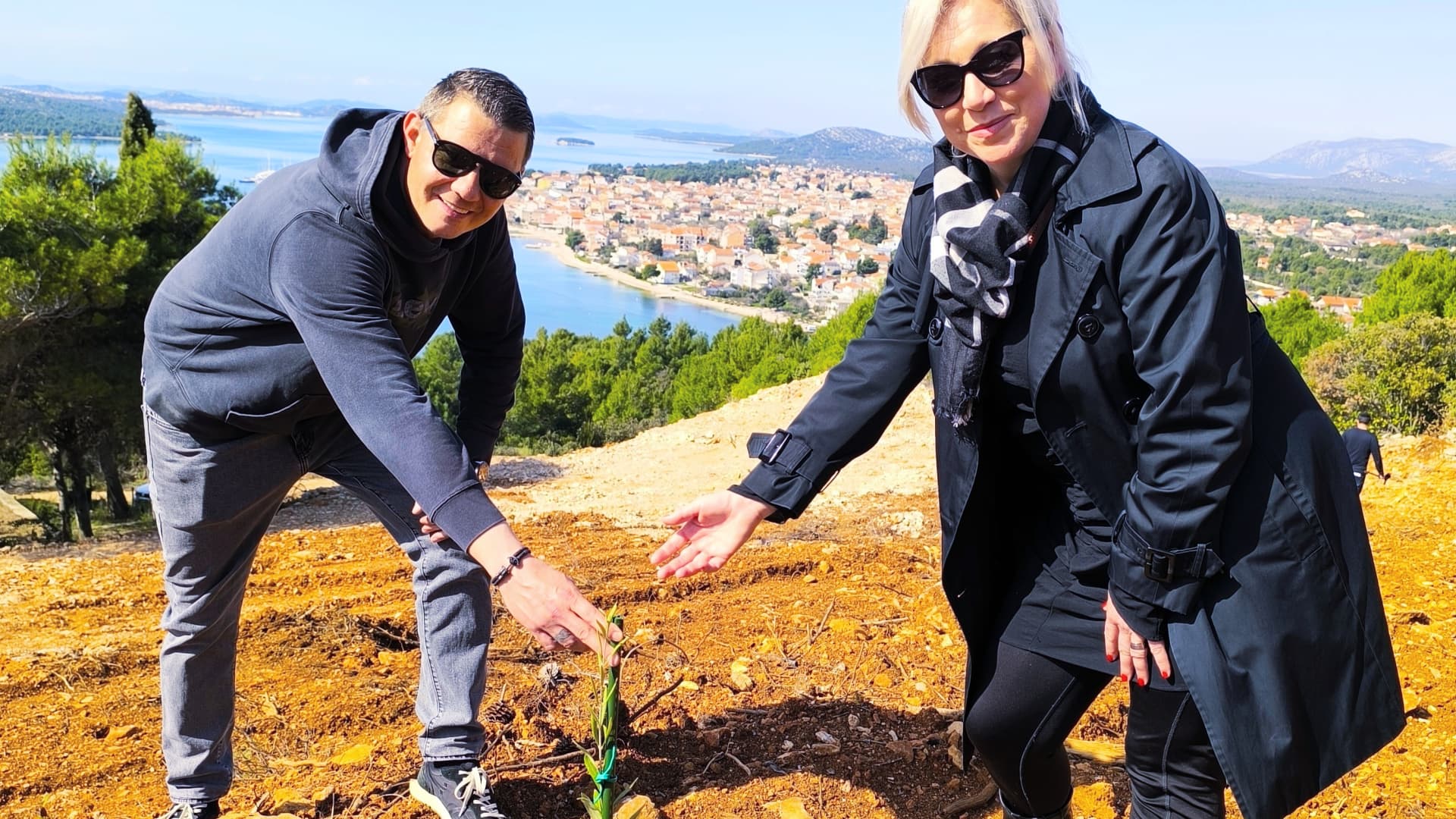
Kresimir Uroda and his fiancée Đurđica
“This will be a kind of tourist attraction,” agrees Danica. Krešimir is confident that with the support of his family, Đurđica, and Roko, their olive-growing business will continue to flourish. He believes that the combination of quality olive oil production and olive tourism is the future of the region, emphasizing that success hinges on perseverance. His mantra for achieving complete success is simple: “Don’t give up. Second, don’t give up and third — don’t give up!”


